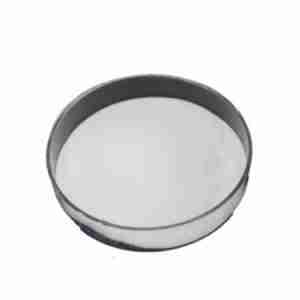Sodium pyruvate Typical Properties
Item
Specifications
Appearance
White powder
Assay
≥99%
Acidic Radical
≥76%
Los on drying
≤0.5%
PH
5~7
Heavy metals
≤10ppm
As
≤1ppm
Chlorides
≤20ppm
Sulfates
≤20ppm
What Is Sodium pyruvate?
Sodium pyruvate is the most common pyruvate. It is a class of endogenous small molecules. Sodium pyruvate and pyruvate are both naturally found in the human body and participate in the metabolism of various tissues and organs throughout the body.
Sodium pyruvate is widely used as a buffer, excipient and antioxidant in medicine, diagnostic reagents and medical devices.
Sodium pyruvate Usage
It is used to determine the substrate of lactate dehydrogenase and to determine the activity of glutathione aminotransferase in liver function test; it is also a good dietary supplement for fitness and weight loss; it is widely used in food and cosmetics. Sodium pyruvate has broad development prospects in clinical applications. Most of the research on sodium pyruvate is still in the stage of animal experiments and in vitro experiments. The products on the market are:
1 Rejuvesol Red Blood Cell Processing Solution is mainly used for the regeneration of red blood cells in vitro. It is a necessary preparation for the long-term preservation of low-temperature blood. Every 50ml of red blood cell regeneration solution contains 0.550 g of sodium pyruvate.
2 Embryo transplantation fluid, used for the cultivation of embryo transfer in in vitro reproductive technology. The main components are alanine, alanyl glutamine, sodium pyruvate, etc.
3 “Binminling” bacteriostatic nasal cavity sprayer is used for nasal flushing of various acute and chronic rhinitis. The main liquid components are sodium chloride, sodium pyruvate and polyhexamethylene biguanide.
Sodium pyruvate Packaging and Shipping
Package: 25 kg/Fiber Drum
Sodium pyruvate Storage
Stored in a sealed container in a cool dry warehouse






